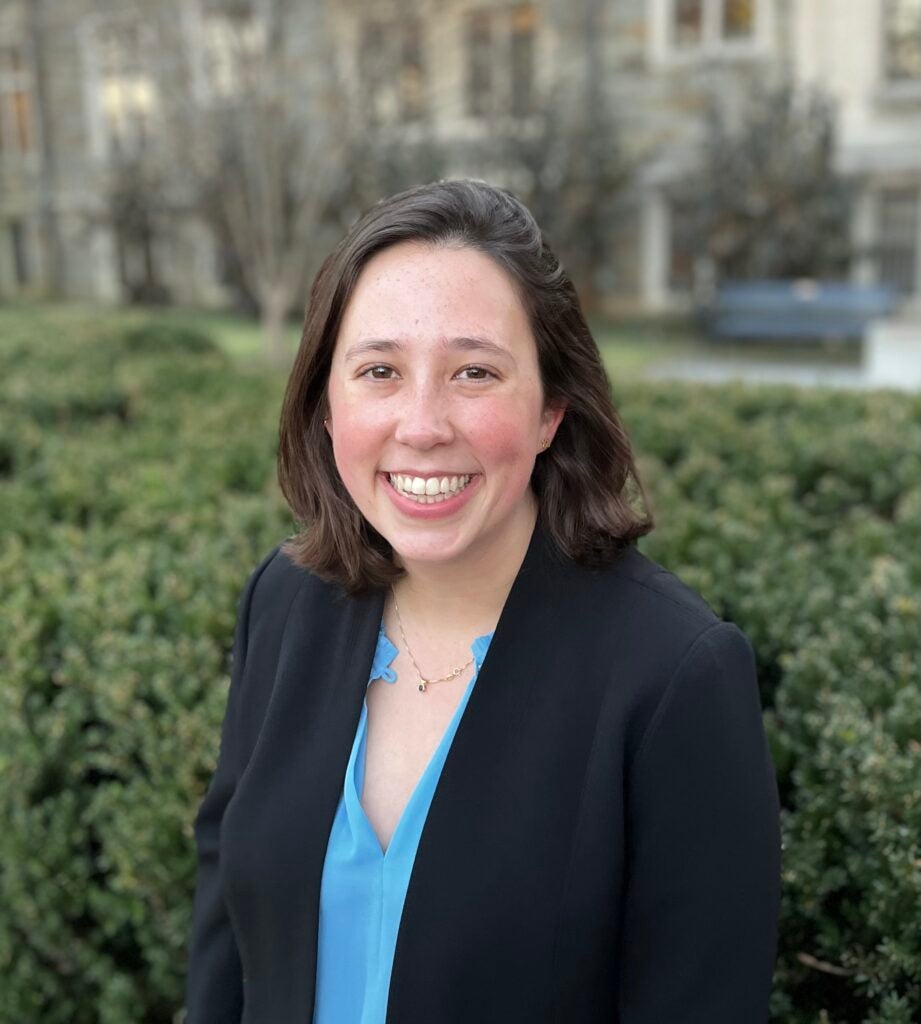Amelia Crabtree | Student Spotlight

Meet Amelia!
“I really liked how the program was able to be completed in one year but that there were still ample opportunities to pursue research or an internship in that condensed time frame.“
– Amelia, Class of 2022
About Amelia
Amelia (she/her) is a current student in the Biohaz program, graduating in May 2022. She is also a Global Biological Policy and Programs Intern at the Nuclear Threat Initiative. After graduating from American University with a degree in public health, she worked at the U.S. Department of State’s Office of the Global AIDS Coordinator, supporting PEPFAR programs in the Western Hemisphere. Amelia also worked on the federal COVID-19 response, developing daily and weekly data reports, which is where she started to develop an interest in biosecurity and biodefense. In her spare time, Amelia enjoys refereeing high school lacrosse, attempting to cook, and working on 3-D puzzles.
What made you choose Georgetown University for your MS degree?
I was drawn to the Georgetown Biohaz program for a few reasons. First, I really liked how the program was able to be completed in one year but that there were still ample opportunities to pursue research or an internship in that condensed time frame. Second, I couldn’t find a class in the program requirements that I didn’t want to take. So many of the courses were unique and unlike anything I found in other programs (namely, Chemistry of War, Bioterrorism, and Infectious Disease and Conflict). The last reason was the alumni network. From some searching I did on my own, the network seemed super robust and alums were holding positions that I was interested in. That’s certainly been the case, and networking with alumni has been an incredible addition to the academic elements of the program.
What is one thing that makes the Biohaz program unique?
I think something that makes the biohaz program unique is that it’s not just biological threat classes, but also nuclear and chemical threats. That’s not something you find often in similar graduate programs.
What has been the most beneficial component in the Biohaz program that has helped you search for a job?
What I think has been incredibly helpful is the breadth of types of assignments I’ve done as a part of the Biohaz program. From memos to policy papers to more traditional research papers, I’ve been able to use these assignments as writing samples and as evidence that I can write professionally.
What has been the most valuable experience you’ve had or course you’ve taken in this program?
The most valuable course I’ve taken is definitely Policy and Pandemic Management. The class covered relevant emergency management and public health policies from the 1990s through today, and the term assignment was an analysis of a COVID-19 related policy shortfall. We had incredible guest speakers come in to lecture from all across the government and got a phenomenal view of what gaps still exist in the policy framework.
What advice would you give to prospective students?
I would recommend that prospective students reach out to our incredible program director, Dr. Erin Sorrell, with any questions about the program and where alumni have landed. Connecting with current and former students will help you get a better sense of what the program is all about and the way every student is able to personalize their degree based on their interests. The field is growing so much, and there’s something that appeals to everyone in both the Biohaz program and professionally!